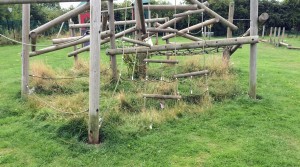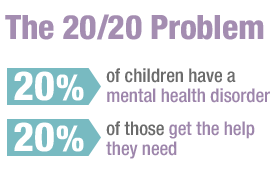The York Council is set to adopt a new strategy for managing children in its care.
A report, due to be considered next week, follows revelations that the service continues to substantially overspend its annual budget.

Tedder Road playground
The consultation is an important part of the city’s updated play policy ‘Taking Play Forward’ which was approved in May 2016. It is being launched with this summer’s Shine programme of activities for five to 18 year olds and asks young people what they would like to see take place, whether new equipment or other improvements.
The consultation includes City of York Council and Parish Council-controlled play areas and will influence how £265,000 of funding will be spent on playground improvements in 2017/18. Around £30,000 has already been allocated towards the replacement skatepark in Rowntree Park.
Suggestions are invited from children, young people, parents or carers and their ideas will be considered by a multi agency panel, including young people themselves. Photos or drawings are also welcomed. A final list of schemes will be forwarded to the Executive Member for approval and prizes of play and sports equipment to use in outdoor play areas are available for the best ideas.
(more…)
 A report outlining options for the future development of York Music Hub and York Arts Education will be considered by the Executive Member for Education, Children and Young People on Thursday 30 June. The options are being considered to support the continued development of excellent music opportunities for children and young people in the city.
A report outlining options for the future development of York Music Hub and York Arts Education will be considered by the Executive Member for Education, Children and Young People on Thursday 30 June. The options are being considered to support the continued development of excellent music opportunities for children and young people in the city.
Based on an evaluation by managers and advice from York CVS’s consultancy service, the Executive Member will be asked to agree to separate the two operations. It is recommended that York Music Hub becomes a Charitable Incorporated Organisation (CIO) and the case is investigated for York Arts Education to take on the legal entity of a social enterprise by forming a Community Interest Company (CIC).
York Music Hub is a strong partnership of music education providers in the city. York Arts Education, currently a lead partner, would continue to participate in the hub as a member. The hub, funded by the Arts Council England, aims to develop musical excellence and diversity through its commissioning and partnership work, its quality of music provision and by sharing best practice. Its objectives, in line with the National Plan for Music Education include:
(more…)
The event, which is part of this year’s Festival of Ideas, will run between 6pm and 7pm see children look at and work with a variety of robots as they learn code and robotics at a fun family workshop.
The workshop is the latest coding event in the city following successful events at York Explore Library Learning Centre and the National Railway Museum and more as part of an exciting Code York programme to help people across York learn to code.
During the fun session children will be meeting and viewing many different types of robots that will be on show from the University of York’s Robotics Lab including a humanoid robot named NAO who will be demonstrating its abilities with football, dancing and speech; a scorpion robot, a Rubik’s cube solving robot and much more. In addition there will also be a competition with an exciting family prize.
The event is for anyone aged 7-14 years old that has an interest in coding and children are being urged to book their place at the free event now at www.yorkchildrensuniversity.eventbrite.co.uk to avoid disappointment as places are going fast.

Strimming needed under play equipment in Grange Lane park
The City has £415,000 available to invest in new play provision. However, many existing sites are being excluded from consideration for improvement because they have “recently” had investment from the Playbuilder programme, the National Lottery or similar.
That means that 4 sites in Westfield – Chesney’s Field, (Foxwood Lane) Playbuilder 2009/10, Grange Lane Playbuilder & Yorventure 2010/11, Acomb Green Big Lottery Fund 2012 and Cornlands Road 106 and Yorventure – will not benefit.
It seems a shame to us that resources are not to be distributed based on the number of children resident in each area.

Westfield’s newest playground – located in the Cornlands park – is increasingly popular
It does mean though that some playgrounds, like the one in the Tedder Road park, may qualify for an uplift. The absence of a playground aimed at children living in the Kingsway West area has been an issue for a long time so perhaps that neighbourhood also may benefit.
Suggestions are being invited through the summer edition of “Shine”
The report also talks about high usage playgrounds being inspected each week to ensure regular maintenance and repair work is carried out.
The council says it is “planning to make Children’s Centre services a key part of new Local Area Teams being created to support families in the crucial early years of a child’s life and through into adulthood (up to 19 years old or 25 years old for disabled young people)”.
However, the consultation talks – in the small print – about exploring “for each of our buildings if transferring ownership and management to partners and communities could save money but still ensure services for families“.
It is clear that the Council plans to de-register its children’s centres and hand the buildings over to third parties including possibly the burgeoning number of independent “Academy” schools.
Effectively parents and neighbours would lose their influence over how – or even if – the centres operate.
The Council line is that they will “locate services in local communities – providing access to community health services, parenting and family support, early education and childcare, as well as links to training and employment opportunities for families with children aged under five.
The consultation is being shared with service users and professionals across the city. The proposals recognise that the council needs to be able to help those in most need at the earliest possible stage, so that every child in York has the best possible start in life, that issues in later life are prevented and so that the need for more intensive and high-cost interventions are reduced.
As part of the new approach for families the proposals are that the council will:

The well-being pilot project is a joint initiative between City of York Council, Child and Adolescent Mental Health Service (CAMHS) and two clusters of schools, which aims to strengthen the emotional and mental health support arrangements for children and young people.
Alongside the idea that children and young people’s mental health is everybody’s business, additional mental health capacity and expertise is being provided to schools by new School Wellbeing Workers.
These workers will focus on providing training, offering support and advice to pastoral staff, and delivering individual and group work to children and young people.
(more…)
Over 250 professionals working with children and young people will converge in York today (Wednesday 27 January 2016) for the annual No Wrong Door Conference.
Organised by the council’s Children’s Trust Unit, the eighth conference, will be held at York Racecourse.
(more…)
The Department for Education has published the results of GCSE exams taken last year. They make grim reading for the York High School where success rates have plunged.
Of course, there may be many reasons for this and parents will be expecting a full explanation from the head teacher and his school governors in due course.
From next year, schools in England will be measured on what is known as Progress 8. Progress 8 will replace the five or more good GCSEs, including maths and English, benchmark as the key measure for all secondary schools.
Progress 8 assesses the progress pupils make between Key Stage 2 tests taken at the end of primary school and their performance in a specified mixture of eight subjects at the end of secondary school. Schools will be given a score based on how their pupils have progressed compared to the national average.
This year, schools were given the option to “opt in” for Progress 8 and 327 schools (around 10%) took this up.
Nationally, head teachers have long complained measuring success on the basis of GCSE results alone is unfair as it does not take into account the intake of the school.
But ministers have maintained parents want and need simple and easy-to-digest information about schools.
The difference in achievement by gender is startling, with roughly a fifth fewer boys than girls reaching the end of Key Stage 4 with a good set of GCSEs.
Some 61.8% of girls got five good GCSEs, including English and maths, compared with 52.5% of their male peers.
And fewer boys than girls made at least the expected level of progress – 65.9% of boys opposed to 76.5% of girls.
More girls (29.3%) than boys achieved the English Baccalaureate (EBacc), which requires GCSEs in two sciences, a language, history or geography, as well as English and maths. Only 19.5% of boys obtained it.
Overall, 24.3% of pupils achieved the EBacc.
There was also a marked difference between the performance of disadvantaged pupils (those eligible for the pupil premium) and their more advantaged peers, with just 36.7% getting five good GCSEs, including maths and English, compared to 64.7%.
The poorest performing local authority was Knowsley on Merseyside, where 37.4% of pupils met the required standard, compared to the national average of 57.1%.
While the region has the highest adult smoking prevalence in England (20.1% compared to an England average of 18%), only one in eight 15-year-olds smoke and the proportion of young smokers is dropping.
Within the next decade there could be a generation of children that don’t smoke. .
City of York Council’s Executive Member for Adult Social Care and Health Councillor Carol Runciman said: “We want children who have started school this year to be the pioneers of a smokefree generation: today’s five year olds can be smokefree at 15 when they are preparing for their GCSEs and so can all the year groups following them.
“They can be smokefree when they leave school or college and as adults. Breathe 2025 is about how all of us can inspire and help them to make that happen.”
The campaign is being run by a collaboration of partners across Yorkshire and the Humber, including City of York Council and Public Health England.
People and organisations are being asked to show their support by going to the campaign website or Facebook page and signing up to one or more simple, practical actions. This could be pledging to watch and share the Breathe 2025 video, or promising to display a Breathe 2025 poster. There are a range of simple actions to choose from, as individuals or on behalf of an organisation such as a school, GP or local business.
Councillor Runciman continues: “Giving children and young people the best start in life is a priority for City of York Council, parents, family members and many other organisations and communities in York – and not smoking is a great start so please go to the Breathe 2025 website and show your support.”
City of York Council’s Interim Director of Public Health, Sharon Stoltz said: “Evidence suggests that if young people don’t start using tobacco by the age of 26 they will almost certainly never start, so we have a great opportunity here to transform the health of our region and we can do it within the next 10 years.
“It is estimated that smoking in York costs society around £50.1m annually and smoking breaks cost businesses in York £24.2m each year. Around one in two smokers die from a smoking-related illness. If we can prevent young people from smoking that’s not just an investment in their health as individuals, it’s an investment in a healthier future for everyone.”
The Breathe 2025 website is at www.Breathe2025.org.uk